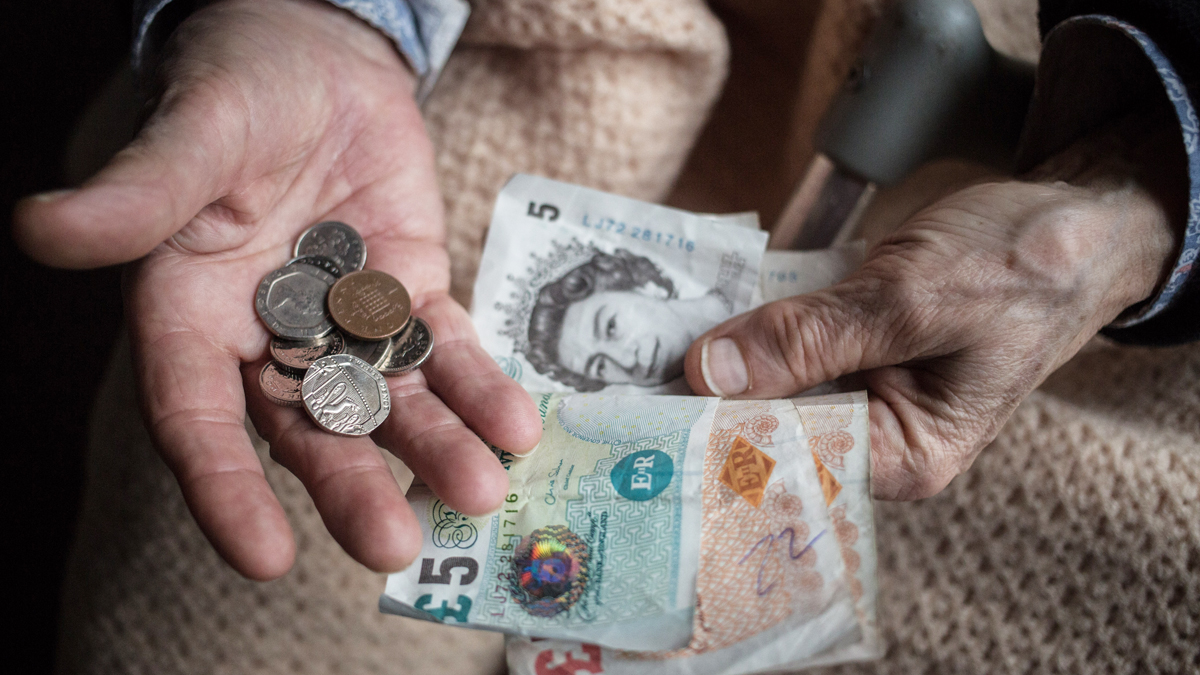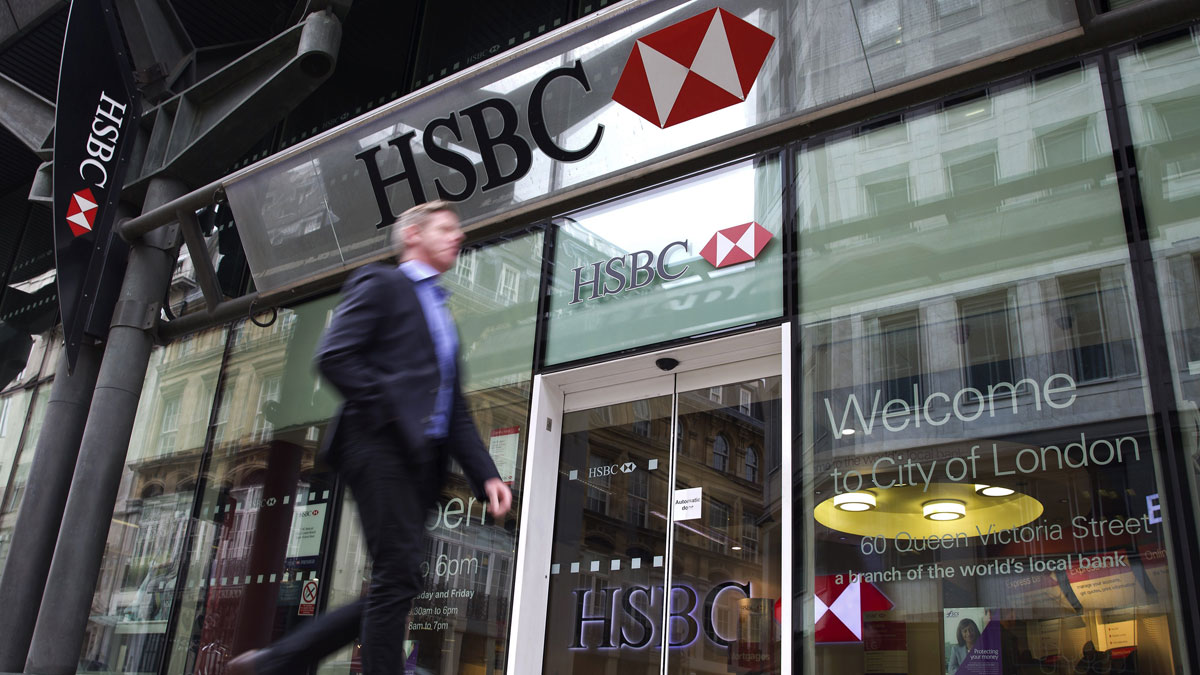Innovative Finance Isas: what you need to know about IFIs
New IFI Isas will let you shield savings held in peer-to-peer lending accounts from income tax

A free daily email with the biggest news stories of the day – and the best features from TheWeek.com
You are now subscribed
Your newsletter sign-up was successful
In last week's budget George Osborne announced that from next April there will be a new addition to the Isa family – Innovative Finance Isas (IFIs).
What is it?
The IFI is a new type of Isa that you can use to protect your savings from the taxman. The difference with an IFI is that you can put peer-to-peer (P2P) investments in it. This means that from 6 April 2016 you won't have to pay income tax on money you make from P2P investing, if you hold those accounts within a IFI.
The Week
Escape your echo chamber. Get the facts behind the news, plus analysis from multiple perspectives.

Sign up for The Week's Free Newsletters
From our morning news briefing to a weekly Good News Newsletter, get the best of The Week delivered directly to your inbox.
From our morning news briefing to a weekly Good News Newsletter, get the best of The Week delivered directly to your inbox.
What is peer-to-peer investing?
P2P investing involves depositing your savings with a company such as Zopa, Ratesetter or Funding Circle, who will lend your money to individuals and small businesses. The idea behind it is to cut out the middle-man – the banks – and the associated costs so that people can borrow at lower rates. The good news for savers is they get a much higher interest rate.
P2P investing has boomed since its launch in the UK ten years ago, and this is reflected in the government's move to include it in Isas.
Why should I care?
A free daily email with the biggest news stories of the day – and the best features from TheWeek.com
If you want a decent return on your savings and are prepared to shoulder a little more risk then you should definitely consider investing with P2P firms. At present it is possible to get a return of more than 5 per cent over five years with both Ratesetter and Zopa. In contrast, the best five year rate with a traditional savings account is 3.1 per cent or 2.5 per cent for an Isa.
That 5 per cent return drops to 4 per cent after tax for basic rate taxpayers and 3 per cent for higher rate taxpayers. But, from next year you could earn tax-free returns that are double what you are getting in the traditional savings market.
"This is a game changer for millions of Brits who have suffered from poor returns since the financial crash," says Giles Andrews CEO of Zopa.
What are the risks?
While P2P investing offers better returns than traditional savings accounts that is because you are taking on slightly more risk.
"Consumers shouldn't plunge their life savings in without understanding exactly how their money will be used," says Hannah Maundrell, editor-in-chief at Money.co.uk.
Your money is being lent to individuals or small businesses, and there is a chance those borrowers won't repay their loans. Zopa and Ratesetter have set up funds to compensate investors for defaults, and to date they have been able to cover any losses – but there is no guarantee that they would be able to do so if a much higher than expected proportion of loans went bad.
Another issue is that money deposited with a P2P firm isn't covered by the Financial Services Compensation Scheme. This means if the firm goes bust you could lose all your cash.
What next?
At the moment the only thing you will be able to put in an IFI when they launch next year is P2P investments. But, that could change. Osborne also announced in the Budget that there would be a "public consultation on whether to extend the list of Isa eligible investments to include debt securities and equity offered via a crowd funding platform."
After making major changes to the way UK pensions work it appears Osborne is now turning his attentions to how we save outside of retirement planning.
-
 Health insurance: Premiums soar as ACA subsidies end
Health insurance: Premiums soar as ACA subsidies endFeature 1.4 million people have dropped coverage
-
 Anthropic: AI triggers the ‘SaaSpocalypse’
Anthropic: AI triggers the ‘SaaSpocalypse’Feature A grim reaper for software services?
-
 NIH director Bhattacharya tapped as acting CDC head
NIH director Bhattacharya tapped as acting CDC headSpeed Read Jay Bhattacharya, a critic of the CDC’s Covid-19 response, will now lead the Centers for Disease Control and Prevention
-
 Six actions to protect your finances before the Autumn Budget
Six actions to protect your finances before the Autumn BudgetIn Depth Reforms to property taxes, pensions and inheritance tax may be on the agenda for the 2025 Autumn Budget. Here is how you can prepare
-
 Four key tax changes to prepare for in April
Four key tax changes to prepare for in AprilThe Explainer With time running out, a last-minute checklist could help you make the most of your allowances
-
 The best non-Isa savings options
The best non-Isa savings optionsIn Depth Isas are a great long-term savings tool, but they often don't offer the best rates.
-
 Which savings accounts pay the worst rates?
Which savings accounts pay the worst rates?In Depth Banks will have to implement seven-day switching and notify customers of rate changes
-
 'Workplace' Isa vs Pensions: how best to encourage saving?
'Workplace' Isa vs Pensions: how best to encourage saving?Speed Read New pensions minister seems to have supported merging of Isas and pensions before taking government job
-
 Isa interest rates: don't get caught out by falling returns
Isa interest rates: don't get caught out by falling returnsIn Depth Since the announcement of Super Isas in the budget, interest rates have been anything but inspiring
-
 New Isas: what are they and how do they work?
New Isas: what are they and how do they work?In Depth Isas have now been replaced by Nisas, meaning new rules for the tax-free savings accounts